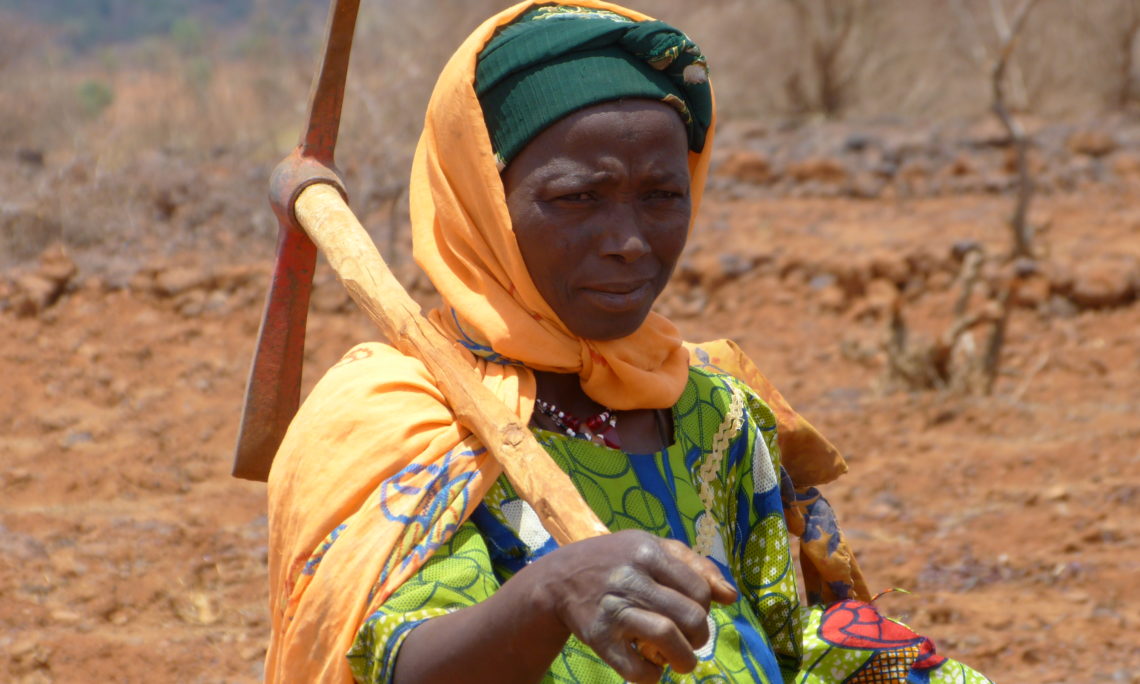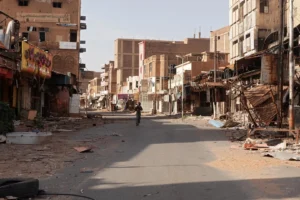“Working on gender issues requires the ability to understand questions such as ‘why’ and ‘how’,” said Stibniati Atmadja, Ethiopia’s Country Lead for the International Fund for Agricultural Development (IFAD)’s Women’s Land Rights Initiative (WLR).
“Qualitative data is key for this – but collecting and analyzing such data is a major skill gap in many countries.”
She made the comments at an event designed to address that very challenge in the Ethiopian context. On November 4–5 2022, WLR together with the Participatory Small-scale Irrigation Development Programme II (PASIDP II) held a demand-driven technical support training on Qualitative Data Analysis (QDA).
Hosted in Addis Ababa, Ethiopia, this training was aimed at enhancing the capacity of PASIDP II staff at the federal and regional levels, and contributed towards IFAD’s goal of securing resource rights through gender transformative approaches.
PASIDP II is an IFAD-funded programme that envisages the development of about 18,400 hectares of small-scale irrigation schemes in four regions of Ethiopia, focusing on women, youth and vulnerable groups. Central to the programme is contributing to the increased recognition of women’s resource rights through gender-transformative approaches. The overall goal of the programme is to promote and strengthen women’s land rights through the integration of GTAs in rural development interventions by improving policies and implementation tools and practices in targeted countries.
During the event, Atmadja shared what inspired the development of this practical training. After an initial project visit and introduction in February 2022, it quickly became apparent to her and the IFAD Gender Experts for Ethiopia (Lucie Vergari and Hai Ha Vu Thi) how motivated the PASIDP II team is to ensure that the programme narrows rather than widens the gender gap among its rural beneficiaries.
The request for the qualitative data collection and analysis training came from Nuredin Asaro, the PASIDP II National Programme Coordinator, following a planning meeting with the PASIDP II team, which focused on gender analysis and developing gender analysis questionnaires.
“Mr Asaro noticed that all the questionnaires we were presenting as part of the proposed gender analysis were very qualitative,” said Atmadja. “He saw that it represents experience in conducting qualitative data analysis, which is a skill that his monitoring and evaluation (M&E) team was lacking. He asked if I was willing to provide training for his team, given that they have qualitative data instruments but limited capacity to analyse the data.”
The training was co-developed by the WLR Initiative and Kefalew Tsegaw, the National Coordinator of PASIDP II and a federal-level M&E expert who was key to the preparation and organization of the training. They wanted a practical training that will support their M&E system to foster better understanding of how and why the various interventions of PASIDP II affect beneficiaries. It focused on improving skills in designing questionnaires and analysing data from an existing outcome survey assessment, which forms the qualitative part of the M&E plan targeted for improvement.
Asaro introduced the training in Amharic, and articulated its importance. Eight staff members of PASIDP II attended the training, including four M&E staff from federal and regional levels (Oromia, SNNPR and Amhara), and four technical experts at the federal level representing gender, watershed management, agronomy and safeguards.
Over the two days, the participants worked through a series of exercises and discussions to reflect on their current questionnaires and data-collection approaches, learn ways to improve the design of questionnaires, and efficiently extract and use data from qualitative data sources. To ensure increased capacity of the M&E unit, and by extension the success of IFAD programmes in Ethiopia, the training team decided to adopt a mentorship approach rather than a one-off training, so that staff could learn by doing with frequent support from QDA experts.
The training was enthusiastically received by the participants and there was a noticeable institutional commitment to improve qualitative data collection. Yaregal Zelalem, the gender expert in the PASIDP II team, said that he and his teammates gained skills and knowledge on how to clean and analyse qualitative data, and to equip the project staff on integrating this into reporting writing.
“It was very very helpful,” said Yaregal Zelalem. “We have implemented and exercised [what we learnt]. [We are] implementing the training on our activities like outcome survey assessment.”
In the week following the training, the federal-level experts in M&E, gender, safeguards and watershed management also put their training into practice. They met in Adama, a city outside Addis Ababa, to review and improve their outcome survey assessment for the PASIDP II project, with further input from Atmadja.
“I’m very pleased with how the PASIDP II project and team members invested in this training” said Atmadja. “I think the outcome has come from having the flexibility and resources to meet their training needs, supportive leadership in PASIDP II, having a process of creating a common vision of the goal in which this training is part of, and co-designing the training itself. Hence, the training was just a point in a longer journey that we decided to take together. I feel privileged to be part of this journey.”
Kefalew Tsegaw concurred. “Both qualitative and quantitative data have equal value in making informed decisions, but most of the time we place more emphasis on quantitative data, mainly because of the lack of capacity in qualitative data analysis,” he said. “This training has been excellent for developing practical skills and learning easy-to-use methods that we need to collect and analyse data in our programme.”
PASIDP II & IFAD’s Women’s Land Rights Initiative
PASIDP II envisages the development of about 18,400 hectares of small-scale irrigation schemes in four regions: Amhara, Oromia, Tigray and the Southern Nations, Nationalities and People’s Region, focusing on women, youth and vulnerable groups. In addition to increasing agricultural productivity and incomes and resilience of the ecosystems and the rural population, the programme is expected to create 15,000 new jobs. Integral to the programme is the strengthening of women’s land rights; when women have weak land tenure, they are disproportionately affected by climate shocks. Land rights for women specifically create a foundation for women — and by extension their families and communities — to adapt to and to be resilient to the impacts of climate change.
The overall goal of the Women’s Land Rights Initiative programme is to promote and strengthen women’s land rights through the integration of GTAs in rural development interventions by improving policies and implementation tools and practices in targeted countries. Its objectives are:
- To enhance the recognition and protection of WLR in targeted countries
- To contribute to the creation of conditions that would enable women’s enjoyment
The programme works with IFAD-funded projects such as PASIDP II to conduct gender analysis, provide training, and pilot gender-transformative approaches.
Source : Forest News











Add Comment